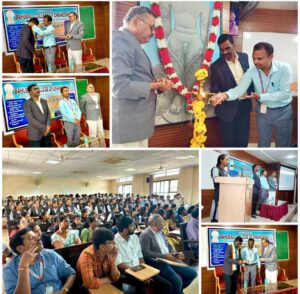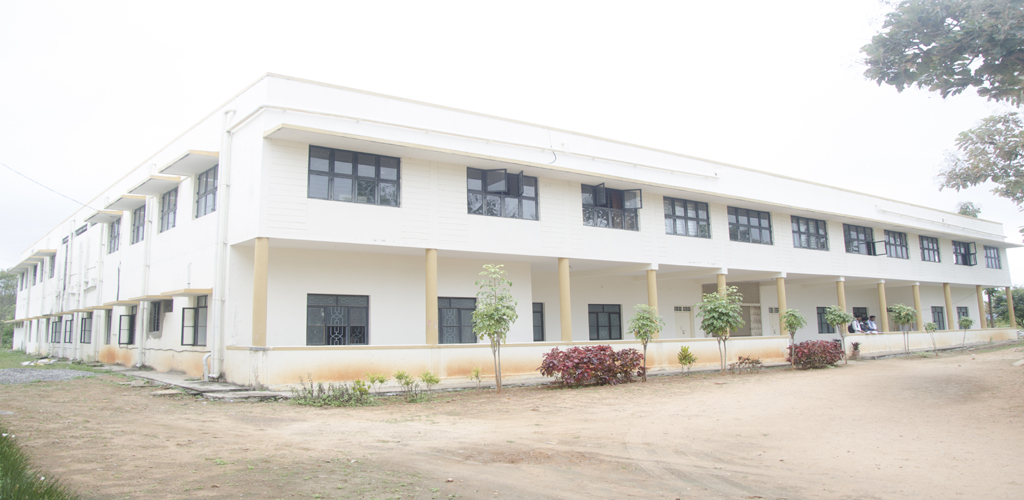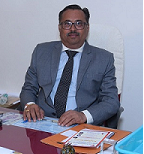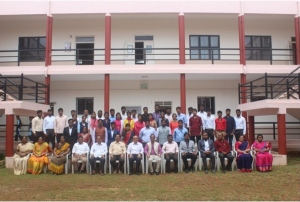
Artificial Intelligence and Machine Learning

About
The department of Artificial Intelligence and Machine Learning was established in the Academic year 2022-2023 with an intake of 60 students. The department has the highly qualified, experienced, and dedicated faculty committed to delivering industry-aligned education and Special care is taken for each student by implementing mentor scheme. The department is committed to creating a stimulating learning environment that inspires innovation, problem solving skill, fosters critical thinking and prepares students to become leaders in the field of artificial intelligence and machine learning.
Vision
“To be a global leader in Artificial Intelligence and Machine Learning education and research, fostering innovation, ethical intelligence, and technological excellence to empower individuals and society for a smarter, more inclusive future.”
Mission
- Educating and training the next generation of AI and ML professionals through comprehensive academic programs, hands-on experience and enabling them to design intelligent systems and solve real-world problems.
- To promote lifelong learning and adaptability in a rapidly evolving technological landscape through continuous skill development.
- To develop ethical, socially responsible professionals who can apply AI/ML technologies for the betterment of society and industry.
- PEO1: to provide exposure to emerging technologies, adequate training and opportunities to work as teams on multidisciplinary projects with effective communication skills and leadership qualities.
- PEO2: students will develop professional skills that prepare them for immediate employment and for life-long learning in advanced areas of computer science and related fields.
- PEO3: Graduates will undertake research for professional career to meet the needs of the society.
- PEO4: Be an entrepreneur or employed in industry, government to demonstrate professional advancement through significant technical achievements with professional ethics and expanded leadership responsibility
- PO1.Engineering knowledge: Apply the knowledge of mathematics, science, engineering fundamentals, and an engineering specialization to the solution of complex engineering problems.
- PO2.Problem analysis: Identify, formulate, research literature, and analyze complex engineering problems reaching substantiated conclusions using first principles of mathematics, natural sciences, and engineering sciences.
- PO3.Design/development of solutions: Design solutions for complex engineering problems and design system components or processes that meet the specified needs with appropriate consideration for the public health and safety, and the cultural, societal, and environmental considerations.
- PO4.Conduct investigations of complex problems: Use research-based knowledge and research methods including design of experiments, analysis and interpretation of data, and synthesis of the information to provide valid conclusions.
- PO5.Modern tool usage: Create, select, and apply appropriate techniques, resources, and modern engineering and IT tools including prediction and modeling to complex engineering activities with an understanding of the limitations.
- PO6.The engineer and society: Apply reasoning informed by the contextual knowledge to assess societal, health, safety, legal and cultural issues and the consequent responsibilities relevant to the professional engineering practice.
- PO7.Environment and sustainability: Understand the impact of the professional engineering solutions in societal and environmental contexts, and demonstrate the knowledge of, and need for sustainable development.
- PO8.Ethics: Apply ethical principles and commit to professional ethics and responsibilities and norms of the engineering practice.
- PO9.Individual and team work: Function effectively as an individual, and as a member or leader in diverse teams, and in multidisciplinary settings.
- PO10.Communication: Communicate effectively on complex engineering activities with the engineering community and with society at large, such as, being able to comprehend and write effective reports and design documentation, make effective presentations, and give and receive clear instructions.
- PO11.Project management and finance: Demonstrate knowledge and understanding of the engineering and management principles and apply these to one’s own work, as a member and leader in a team, to manage projects and in multidisciplinary environments.
- PO12.Life-long learning: Recognize the need for, and have the preparation and ability to engage in independent and life-long learning in the broadest context of technological change.



